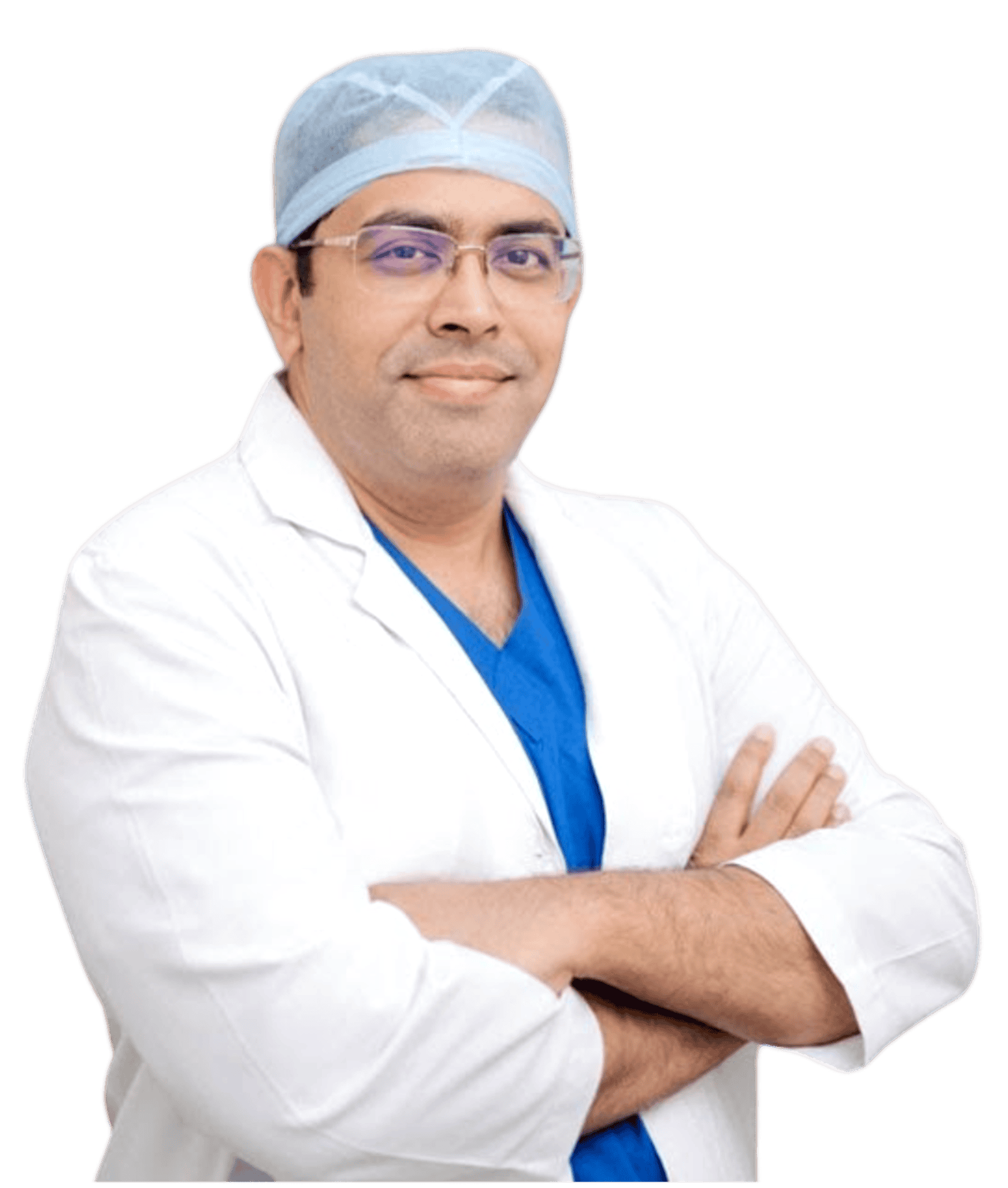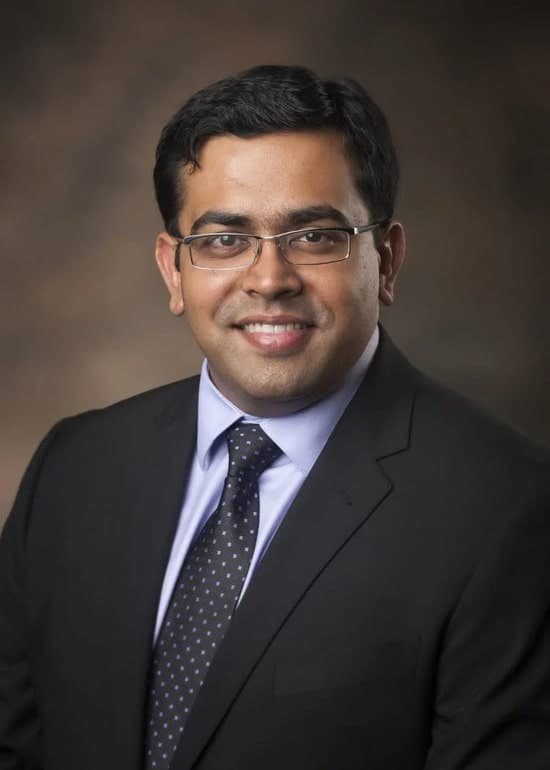Dr. Nikhil P.J.Theckumparampil performs all cardiac surgeries at Apollo Hospitals and provides expert consultation at Heart360 Care.

Dr. Nikhil P.J.Theckumparampil performs all cardiac surgeries at Apollo Hospitals and provides expert consultation at Heart360 Care.
Heart Bypass Surgery, or Coronary Artery Bypass Graft (CABG), is a surgery performed by cardiac surgeons on patients with multiple blockages that cannot be treated by angioplasty or other options. This surgery helps restore blocked blood flow to the heart, thus minimising the chances of heart attacks and strokes. Choosing the best cardiac surgeon for Heart Bypass Surgery in Chennai is important for effective treatment.
Heart Bypass Surgery is a medical intervention used to treat Coronary Artery Disease. Coronary Artery Disease occurs when the blood vessels or arteries carrying blood are blocked due to plaque (fat) deposition. This restricts or blocks the passage of blood to the heart, leading to strokes and cardiac arrest. Coronary artery disease can lead to death if timely treatments are not provided.
In the CABG procedure in Chennai, healthy blood vessels from another part of the patient’s body, preferably an artery from the chest or a vein from the wrist area or leg, are taken and grafted to the blocked vessel. This creates a new pathway for blood flow to the heart and other organs.
This method of bypassing the existing blocked artery helps to restore the blood flow and reduces heart attack symptoms such as chest pain and shortness of breath. According to the studies conducted by the Indian Council of Medical Research (ICMR), CABG performed in India has an impressive survival rate of around 98 percent, leading to improved life expectancy for patients.
Heart Specialist & Cardiac-Surgeon Robotic & Minimally Invasive Cardiac Surgery (MICS) TAVR / TAVI Specialist. Senior Consultant Apollo Hospital




After thorough physical examinations, scans, and tests, a cardiac surgeon may recommend CABG for patients with severe coronary artery disease when other treatments, such as medication or lifestyle changes, do not work. Various factors decide whether to proceed with CABG or not, such as:
Book An Appointment Now
Choosing the right surgeon and the hospital for consultations is the primary step in ensuring a successful Coronary Artery Bypass Grafting Surgery in Chennai. Heart360 Care is led by one of the best CABG surgeons in Chennai, Dr Nikhil P.J. Theckumparampil, who has decades of experience in Cardiac surgery and has completed more than 3,000 heart surgeries.
He has extensive global experience and has trained in cardiac surgery and other advanced procedures like robotic heart surgery at prestigious institutions, including Harvard University, Ohio State University, Vanderbilt University, Temple University, and Pennsylvania University.
He is one of the busiest robotic heart surgeons in the USA, having performed over 200 robotic-assisted cardiac surgeries to date.
Dr. Nikhil is a pioneer in incision-less valve procedures, having conducted more than 400 transcatheter valve replacements using advanced technologies like the Medtronic CoreValve, Edwards Sapien valve, Abbott MitraClip, and Meril MyVal. He is also an expert in surgical electrophysiology, specializing in Cox Maze IV for atrial fibrillation and serving as a proctor for Convergent Hybrid Ablation Procedures.
He is known for his compassionate and patient-centric approach. Dr. Nikhil is highly ethical in his practice and communicates transparently about procedures, success rates, and risks.
CABG is a major surgery and is typically performed under general anaesthesia. The surgery can take several hours, depending on the severity of the blockages and the number of grafts required. The main steps of the surgery include:
Types of CABG:
There are basically 2 main types of CABG surgery performed by cardiac surgeons in Chennai: On-pump and Off-pump procedures.
On-pump bypass surgery is the conventional or traditional CABG procedure that uses a heart-lung machine (cardiopulmonary bypass). The heart-lung machine takes over the functioning of the heart and lungs during the surgery. The heart is stopped temporarily by injecting a specialized solution to provide a clear and stable field for the surgeons to perform delicate procedures such as CABG with precision.
Off-pump bypass surgery is performed on a beating heart and does not use a heart-lung machine. In this surgery, the area of the heart where the grafts will be attached is stabilised using special devices and immobilised while the rest of the heart continues to beat.
The CABG procedure has many advantages, especially for patients with severe coronary artery disease. The primary benefits include:
Want To Know More?
After surgery, patients are moved to the intensive care unit (ICU) for close monitoring. Depending on the severity of the blockages and the complexity of the procedure, patients may remain in the ICU for a few days.
Once the vitals have stabilised and the patient shows signs of improvement, they are shifted to the regular hospital rooms. During this time, healthcare providers continue to monitor vital signs, manage pain and discomfort from the surgery, and check for any signs of complications, such as infection or bleeding. The hospital duration also varies based on how well the patient is responding to medications and recovering.
Recovery at home can take several weeks to a few months. Key aspects of recovery include:
The average cost of CABG in Chennai is approximately around INR 3,50,000. Various factors affect the rate of CABG surgery:
Hospital Recognition: Reputed private hospitals charge higher prices, but they offer modern amenities and personalized care for patients.
Hospital Location: Hospitals in urban areas that are easily accessible to patients and families tend to charge higher fees.
Surgeon’s specialization: Surgeons with years of experience and specialization in cardiac surgery generally charge higher fees.
Diagnostic Tests: Comprehensive preoperative tests such as ECG, blood tests, and angiography add to the initial cost.
Follow-Up Care: Postoperative care, including ICU stays, follow-up consultations, and rehabilitation, can significantly affect the total cost.
Type of the CABG: Using a heart-lung machine can be costlier due to longer surgery times and hospital stays.
General Health Condition: People with severe heart blockages may require more complex and expensive surgeries. Other health issues like diabetes, kidney disease, or respiratory conditions can complicate surgery and increase costs due to the need for specialised care and extended hospitalisation.
Recovery and Rehabilitation: After surgery, ongoing medications and rehabilitation therapies or exercises for managing pain, preventing blood clots, and controlling other health conditions can add to the total costs of the CABG surgery in Chennai.
Queries on Cost?
While CABG in Chennai is a highly effective treatment, it is a high-risk surgery and can have potential complications like:
Book An Appointment Now
